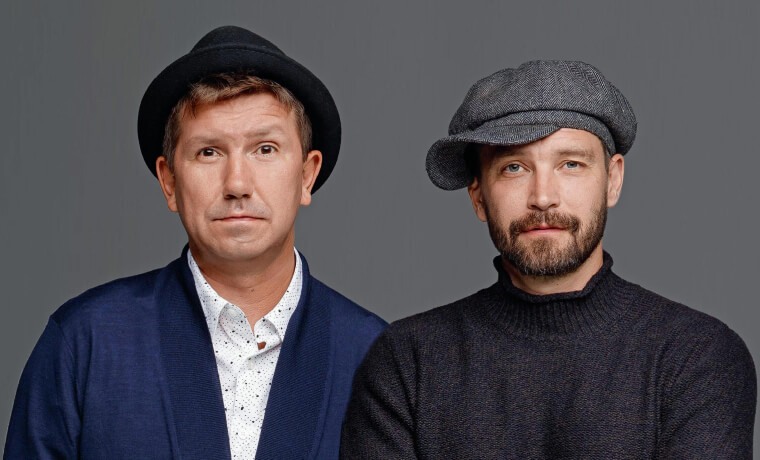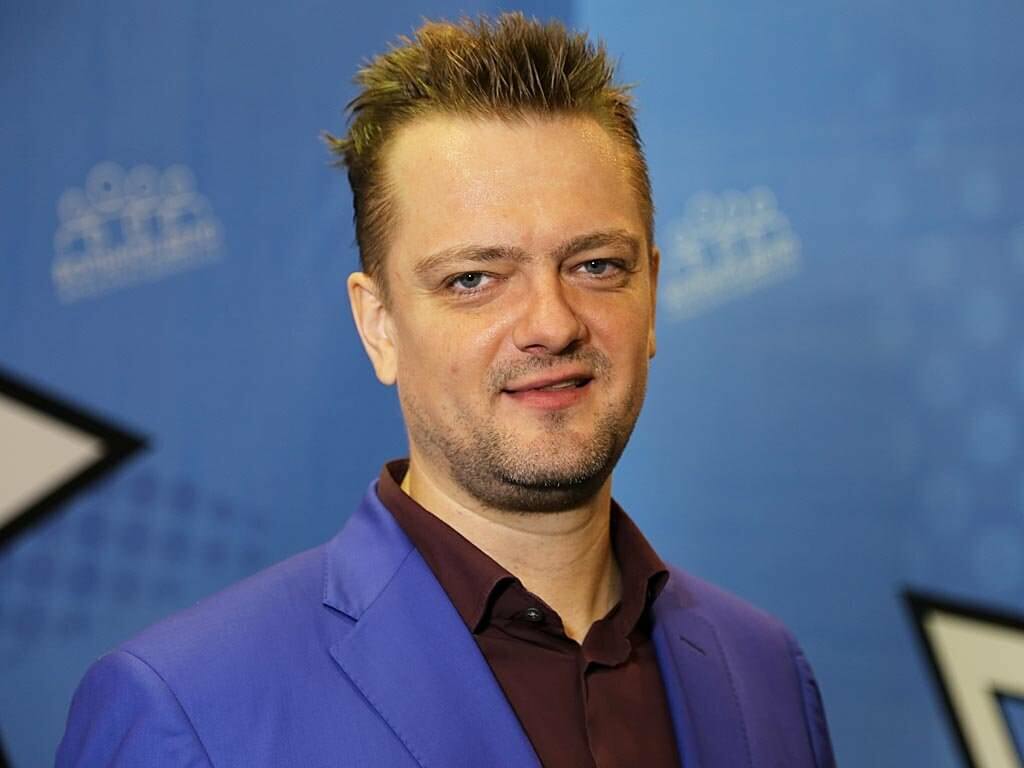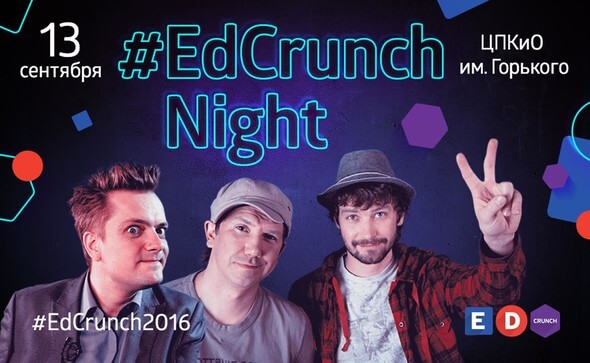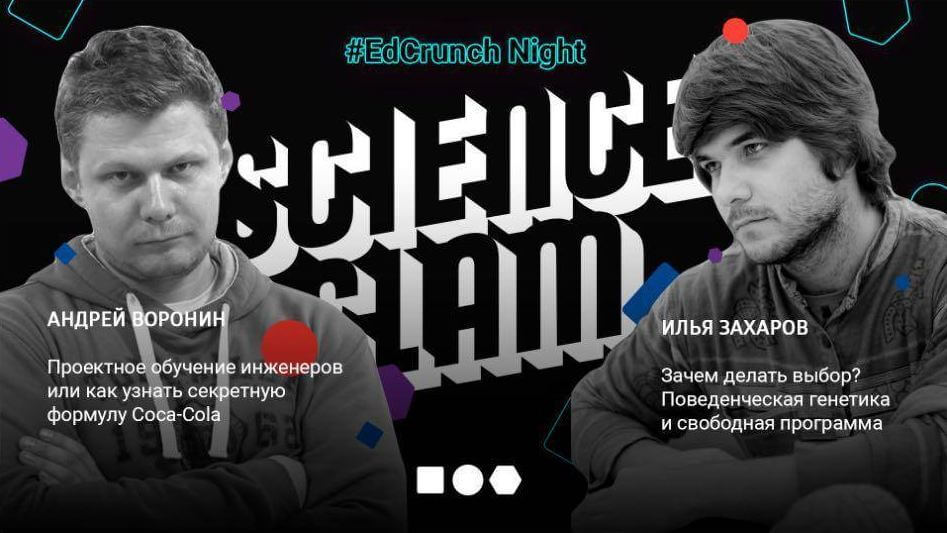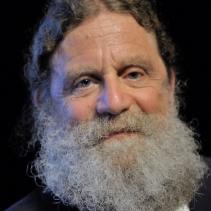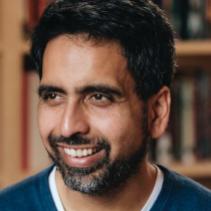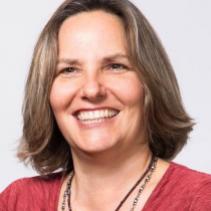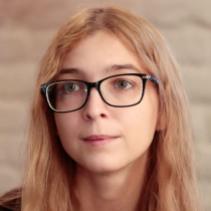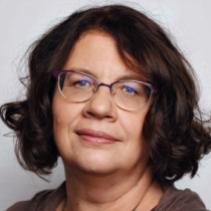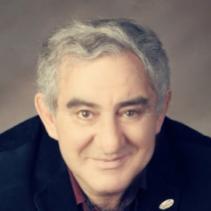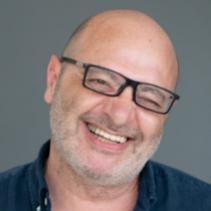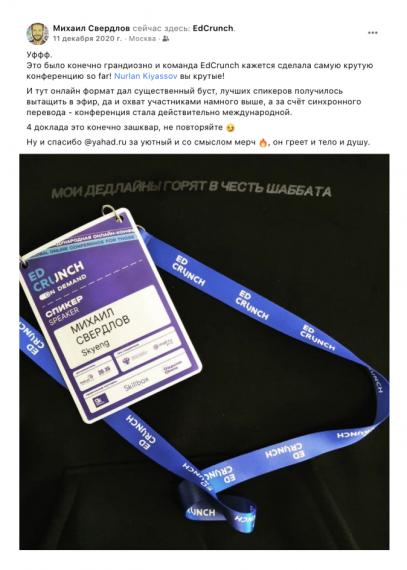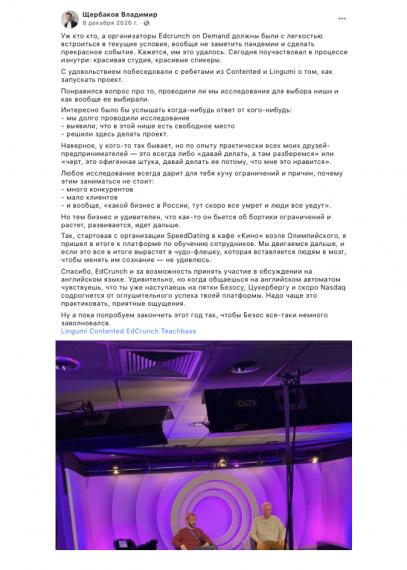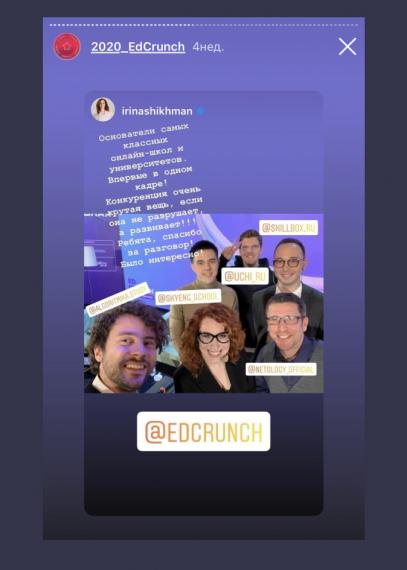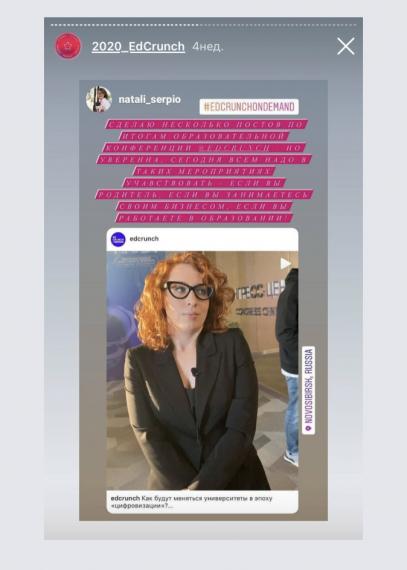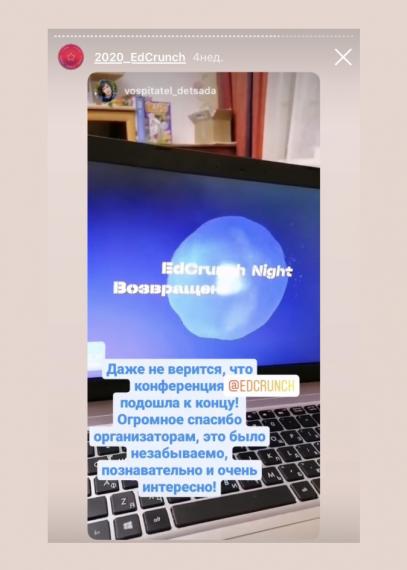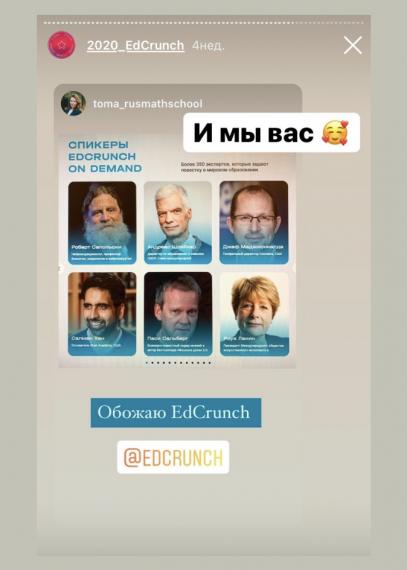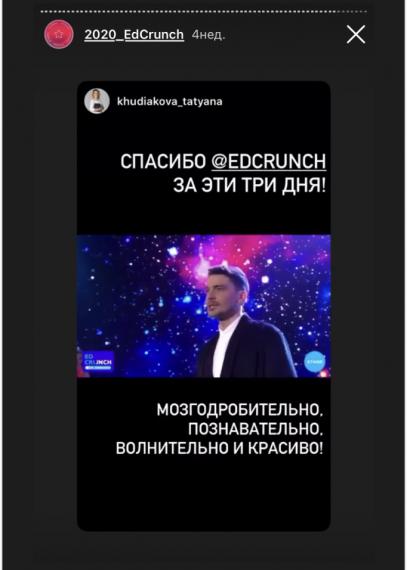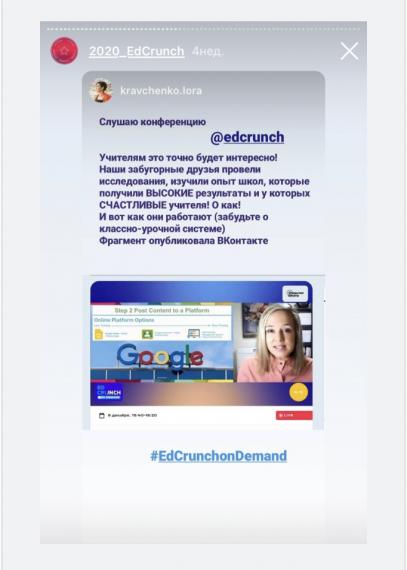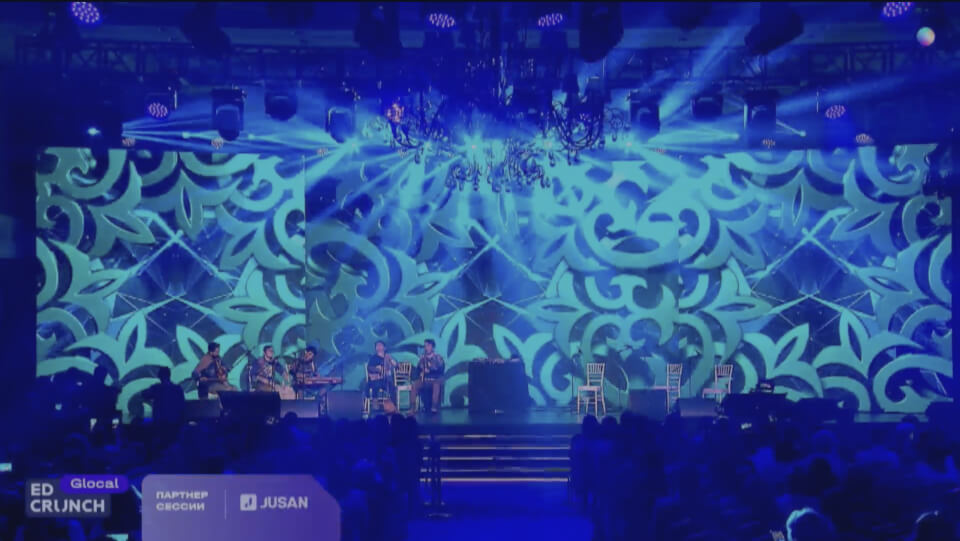EDCRUNCH
HISTORY
From a local event to a global platform that annually presents all the latest and cutting-edge trends in
e-learning technology.

THE FIRST EDCRUNCH
In 2011, Stanford launched Coursera and this led us to think that online education has a big future.
Nurlan Kiyasov, Commercial Director at NUST MISIS teams with partners from other universities to persistently promote the idea of establishing a Russian educational platform that will host online courses in the basic disciplines studied at Russian universities. Back then, none saw the problem and the need for such a platform since universities have been teaching for ages and will continue to do so. This is how EdCrunch was founded in 2014 — to vividly demonstrate to the government officials how much we are falling behind from other countries that are already on the way to introducing new technologies into the educational sector.
EdCrunch conferences — to vividly demonstrate how much we are falling behind.
IT WAS A GREAT CHALLENGE
As it was our first attempt to organize a huge event, many things were new to us: how to arrange visa support for speakers, how to rent equipment during a peak season of events and how to bring all the participants together. That first time the budget was scarce and we had to make choices all the way through: make ads, print banners, get fancy furniture or bring one more speaker.

from sponsors
at NUST MISIS venue

Arkadiy Dvorkovich,
Chairman of the Skolkovo Foundation,
Former Deputy Prime Minister of the
Russian Federation
WE MADE IT
Eventually, we arranged a huge meeting with all the management, invited speakers, including the Deputy Prime Minister of
the Government of the Russian Federation. Daphne Koller from Coursera, founders of Iversit, OpenLearning and Australia
joined the meeting online.
At the meeting, Daphne mentioned
10% of Coursera students were from Russia.
That was a mind-blowing number for all those present. The ministers got jealous, startup CEOs envied, and Nurlan simply heaved
a sigh of relief. Something was definite — it was time to start promoting e-learning in Russia. That was how the 1st
EdCrunch convinced our management and began preparing for the launch of a Russian e-learning platform.
THE 2ND EDCRUNCH:
LAUNCHING A NATIONAL
OPEN E-LEARNING PLATFORM
The idea to create OpenEdu, an e-learning platform, originated from NUST MISIS during the 1st EdCrunch conference and received support from 7 leading universities. Consequently, we requested assistance from the Ministry of Education of the Russian Federation.
The key aim of the entire project: update the content of the curriculum to make it more flexible and timely.
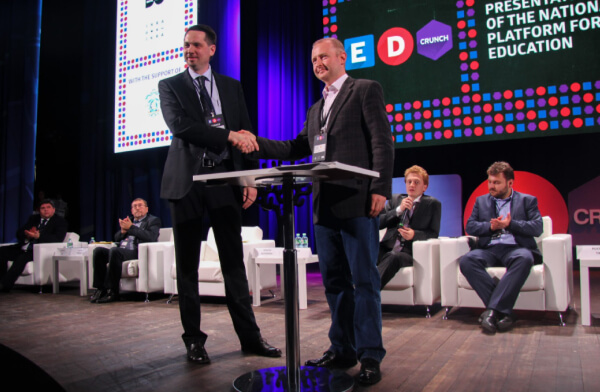
8universities founded
OpenEdu platform owing to EdCrunch
Executives from 8 leading universities sign a memorandum and launch the OpenEdu platform.
September 14, 2020
500courses were available
on OpenEdu in the beginning
of 2020 lockdown
More highlights
Daphne Koller, Founder of Coursera, visited Moscow for the first time.
Launching K-12 track: teachers, school principals and deputy principals from all over Russia took part in the conference along with university representatives and EdTech startups.
500teachers, school principals and deputy
principals visited the conference for free
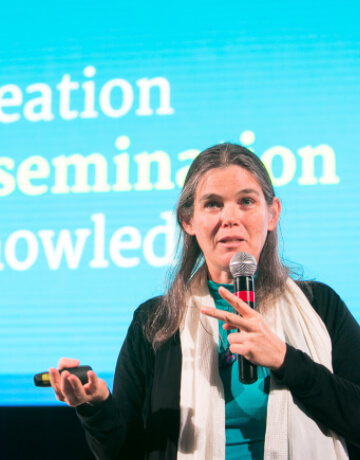
THE 3RD EDCRUNCH
AND 3 NEW TRACKS
Pre-school education. The conference began attracting those who were engaged in early learning: representatives of private kindergartens, hobby groups, and child development centers.
Classroom design and architecture. Projects for new innovative schools in Russia were initiated — Letovo, Horoshkola and the New School. "What should a modern school look like?" the key question we managed to answer together with our prominent experts from all over the world.
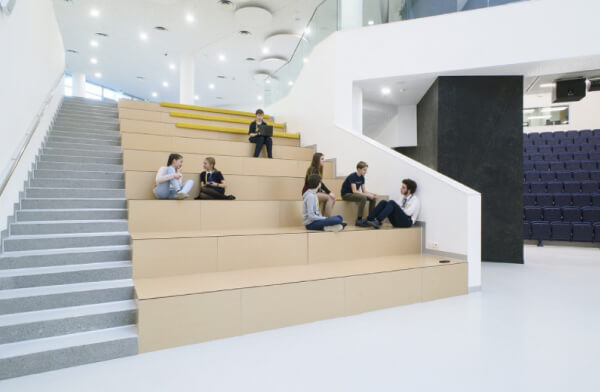
Billionaires, statesmen and enthusiasts are building schools in Russia. These schools are equipped with media centers and video studios, classrooms have sofas and poufs. In classes students can study in a standing or even lying position.
Corporate education. Heads of corporate universities from MTS, Sberbank, Rostec and other corporations, who integrate ongoing training programs for their staff, were brought together in one place.
Captivating speeches, open discussions and workshops by leading international companies enabled participants to fully immerse into innovative corporate education agenda.
Keynote speakers
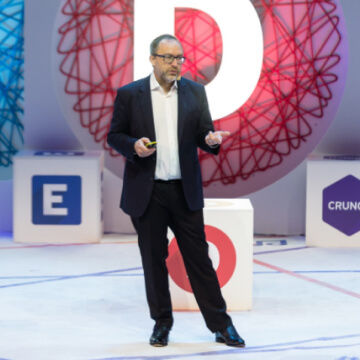
Jimmy Wales,
Founder of Wikipedia.
Shares his thoughts on the library and principles of the Wiki-community.
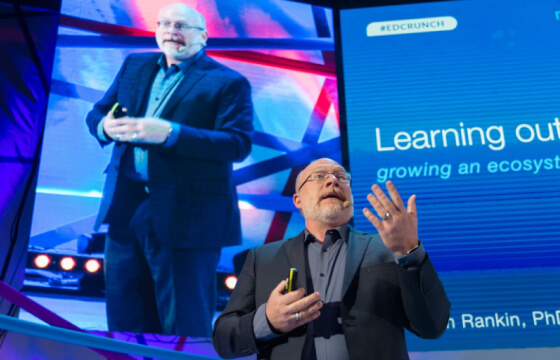
Dr. William Rankin,
Former Director of Learning on the Global Education team at Apple Inc.
Explains why children should be taught to use gadgets for educational purposes and not only for entertainment. Devices may be harmful just like any other objects.
EdCrunch Night at Gorky Park
The first day of the Conference ended with a show at Gorkiy Park. The headliner of the show was Uma2Rman. The show was hosted by Alexander Pushnoy.
THE 4TH EDCRUNCH:
RELOCATION, EXHIBITION AND GRAND COLLAPSE
At the World Trade Center we had 11 halls operating simultaneously. Each hall had a speaker covering a variety of topics to fit any taste: from school and university to business in education.

864
free tickets were given to schools and universities after relocating to a larger venue.
EdCrunch has become a link between the EdTech industry and the government. This is the spot where you can have coffee with the Minister of Education and discuss proctoring with the president of ITMO University.
Exhibition Build Up
At the EdCrunch Expo 2017 the attendees met with the suppliers and integrators of educational solutions, found partners and signed contracts.

Grand collapse. What went wrong
-
Two months before the conference, the key manager
responsible for 50% of the project scope left. And a million more questions with answers hard to find.
And a million more questions with answers hard to find.Face of the manager who took over
-
A day before the event, Nurlan Kiyasov, founder of the conference, asked to change the entire navigation system on the site since it was quite challenging even for the staff to follow directions at such a huge venue with complex floor plans. The staff spent all night re-designing navigation plates. Early in the morning, they rushed to a printing office and spent the rest of the time before the conference re-installing new plates.
-
We knew the underground passes of the World Trade Center quite poorly. As a result, we got lost in there together with Arkadiy Dvorkovich, Igor Rybakov and Andrey Fursenko. Out of his 20-minute speech, Arkadiy spent 10 minutes roaming through the catacombs.
How you can get on stage
How we got on stage
Either due to the fact that the navigation system was not ideal,
or we did not get enough sleep. -
The speaker, who was supposed to deliver the closing speech, had a flight delay.
Our backup plan — find a new one. -
Eleven more emergencies made us feel like Gagarin in space.
How we rocked
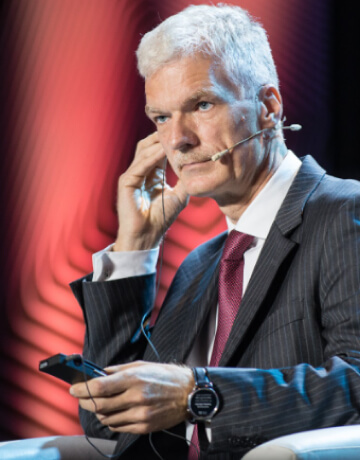
Andreas Schleicher, Director for Education at OECD, came all the way from Paris to describe a successful educational system of the future.
Launched a priority project "Modern Digital Educational Environment in the Russian Federation"

The project made it possible to start a “one-stop” service and move on to individual learning paths.


THE 5TH EDCRUNCH:
WORKSHOPS AND EDTECH TRACK
To save ourselves the embarrassment of the previous event, we decided to change the conference management structure. Now, the key backstage figures were those who had joined us at the dawn of the conference. Over the past 5 years, we managed to grow specialists who knew the conference inside-out and were able to undertake more sensitive parts of the project. For instance, the producer responsible for opening was now in charge of the whole entertainment program of the event.

Launched EdTech as a separate track so that entrepreneurs could share experience, discuss market potential, technologies, and investment.
Launched Workshops at which different experts shared with the audience proven approaches, methods, services and helped adapting them to solve professional problems.
19speakers delivered
23 workshops
Workshop by Maria Stashenko, Founder of Wonderfull Lab.
The attendees learnt to create educational programs based on Design thinking approach.
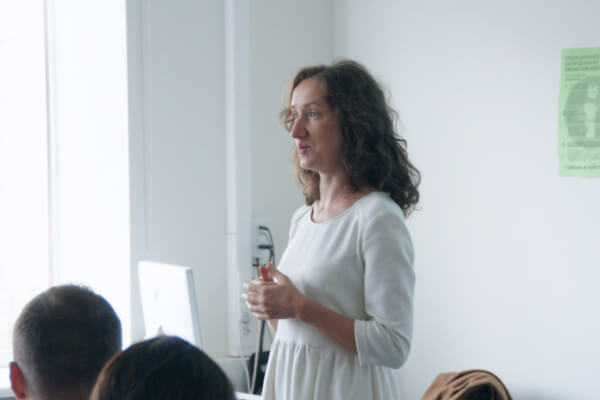
Who else spoke at EdCrunch 2018?
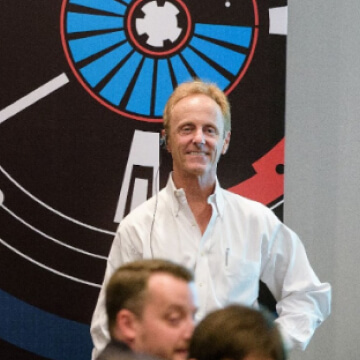
Josh Bersin, Founder of Josh Bersin Academy.
Owing to his visit, HRCrunch, a single-day program for HRDs, was launched at EdCrunch 2018.
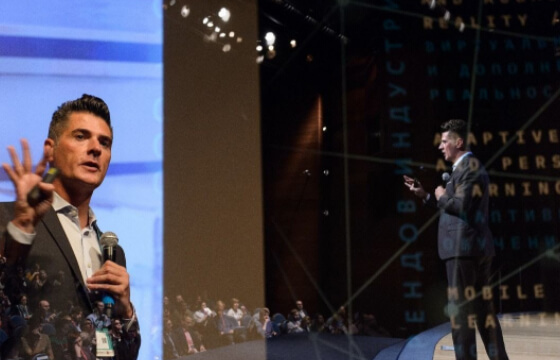
Anthony Salcito,Vice President of Worldwide Education at Microsoft.
Our negotiations with him lasted for four years. We even had to travel to London to make it work out. Eventually, he came in 2018.
THE 6TH EDCRUNCH:
BEST OF THE BEST SPEAKERS, GESA, SPECTACULAR SHOW
EdCrunch 2019 gathered all the top speakers we were unsuccessfully bombarding for many years.
-
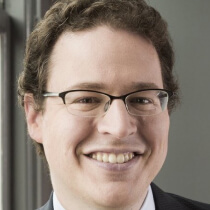
Ben
NelsonFounder and CEO of Minerva Project
-
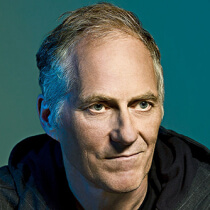
Tim
O’ReillyFounder and CEO of O’Reilly Media, Inc.
-
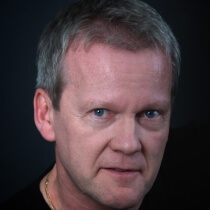
Pasi
SahlbergAuthor of the Finnish education system, author of the best-selling book “Finnish Lessons 2.0”, Professor at Harvard University and University of New South Wales in Sydney
-
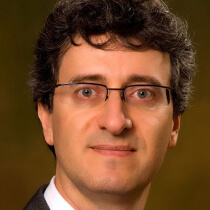
Charles
FadelFounder of the Center for Curriculum Redesign at Harvard’s Graduate School of Education, author of «Four-Dimensional Education»
Redesigned the agenda,
added show and reality elements
At the opening session, the speakers formed three teams: "Government" , "University of the Future", and "Business" .The invited guests to bombard the teams with tricky questions and the teams tried to shoot off.

"I want to be a businessman. Why do I need to go to school?" — asked a 10-year-old boy.
Showed a performance about education of the future. The main character was an ordinary teacher who had the same fears and concerns as his fellow colleagues emphasised how to be helpful when you can Google anything? What interests does phygital have?

Invited a famous Russian standup comic Dmitriy Romanov
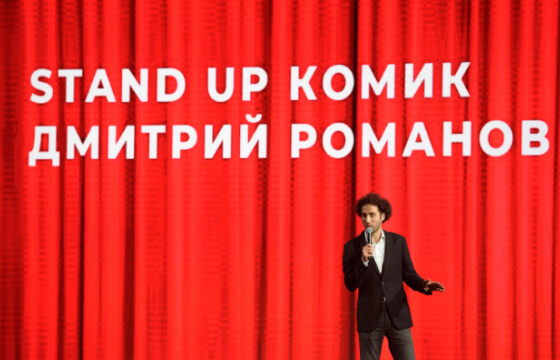
I try to educate myself with books, read a lot and self-educate. The last book I read was “Think Like a Billionaire”. Later I came across another book “Think Like a Millionaire”. I thought to myself: I don’t want to go down to millionaires level as I am already thinking like a billionaire.
Edutaining Branding

At EdCrunch we strive to make everything around education. If there is a poster, then it should have our speakers’ quotes. A company banner should include a fun fact, not just a corporate pattern with logos.
Battle: Barbara Oakley vs.
Tatiana Chernigovskaya
One subject. Two scientists and two opposite visions. They met for the first time on stage and found no reason to argue!
 Tatiana Chernigovskaya
Barbara Oakley
Tatiana Chernigovskaya
Barbara Oakley
Expert advice:
“Sleep well before the exam to transfer the information from hippocamp to long-term memory. It will never happen without
sleep.”
Barbara and Tatiana discussed how the brain works, and Alexander Asmolov added to the discussion. We agreed on the main thing:
Metaphor is a foundation to build
something new.
This is how EdCrunch 2019 ended.
The 7th EdCrunch: Using plan "P" meaning "Pandemic"
After Coronavirus moved the entire education system to distance learning, we decided to hold the conference online — EdCrunch on Demand was our largest project in seven years.

at EdCrunch on Demand
In September, it became clear that the online format had its own specifics and installing a camera that streams live performances would not save us.
"To keep the attendees engaged we had to set up our own Netflix with supporting infrastructure, entertaining shows, and elements of gamification".
Eventually, we turned the halls into full-fledged studios, thought out various plans for speakers and interactive activities for a dynamic stream, hired a film crew of 100 people and developed the online platform EdCrunch on Demand with LMS and social networking functions.
Not only can the platform match sessions to user interests, it allows you to create your own routes of participation in sessions and communicate with other users in private and public chats. Special mention should be made of the opportunity to review the recordings of favorited speeches for a year after the conference.
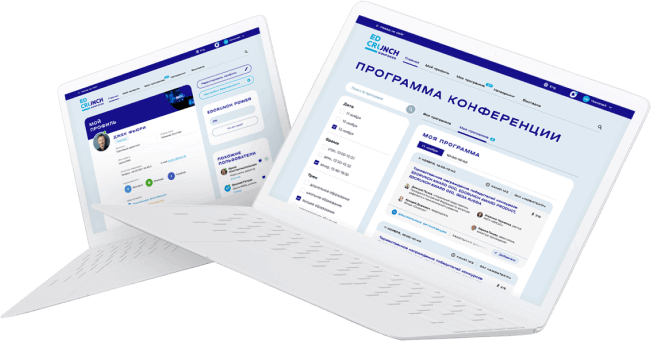
Keynote Speakers of EdCrunch on Demand
-
![Robert Morris Sapolsky]()
Robert Morris Sapolsky
World-renowned neuro-endocrinologist and professor of biology, neurology, and neurosurgery at Stanford University
-
![Salman Khan]()
Salman Khan
Founder of Khan Academy, a free online educational platform that offers a wide range of educational videos
-
![Betsy Corcoran]()
Betsy Corcoran
Co-founder of EdSurge and "Rock Star of Education"
-
![Irina Shikhman]()
Irina Shikhman
Journalist, interviewer, author and host of the YouTube channel "A pogovorit?" ("A Talk?")
-
![Asya Kazantseva]()
Asya Kazantseva
Science journalist, laureate of the Enlightener Prize, and author of three bestselling books on irrational human behavior
-
![Lyudmila Petranovskaya]()
Lyudmila Petranovskaya
Family psychologist, educator, publicist and author of books for parents, founder of the Institute for Family Development (IRSU)
-
![Mikhail Kazinik]()
Mikhail Kazinik
Culturologist, art historian, violinist, member of the Slavic Academy of Literature and Art, author of books on art including "The Secrets of Geniuses", TV and radio presenter, author of 56 films on world culture
-
![Dima Zitser]()
Dima Zitser
Educator, founder and director of the Institute of Non-Formal Education INO and Apelsin School for unorthodox education
Gamification on the platform
Minerva Schools Innovation University student Viktor Perminov won an MBA course at Moscow School of Management Skolkovo for being the most active on EdCrunch on Demand online platform.

According to Victor, he signed up on EdCrunch on Demand because he wanted to learn about innovative educational projects, and find like-minded people to work together, and transform world education in the University of Students project, but then he got involved in the game mechanics.
"Honestly, winning at all costs was not my goal. In the very beginning, all I did was meet new people and actively participate. So, when the first achievements arrived, I thought, while I am at it, why not try going for the prizes.
But, the main award was a complete surprise to me! Frankly speaking though, it was incredibly satisfying to hear them say I was the winner".
The online platform in numbers
-
193sessions
-
100+hours
of streaming -
8parallel
tracks
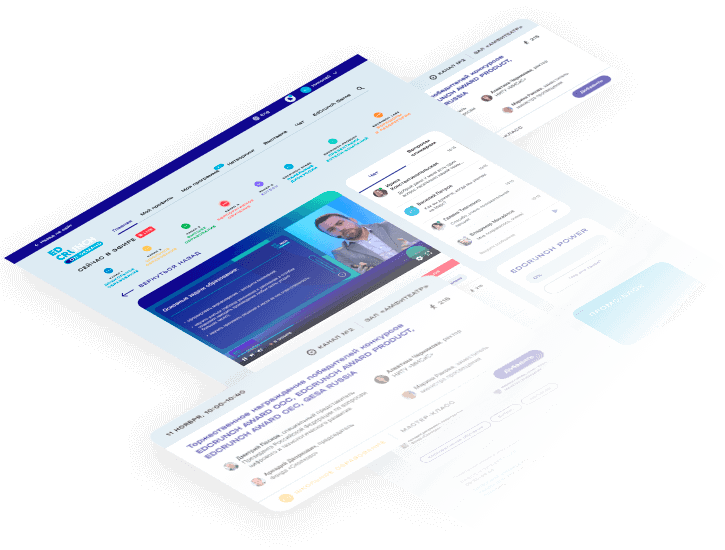
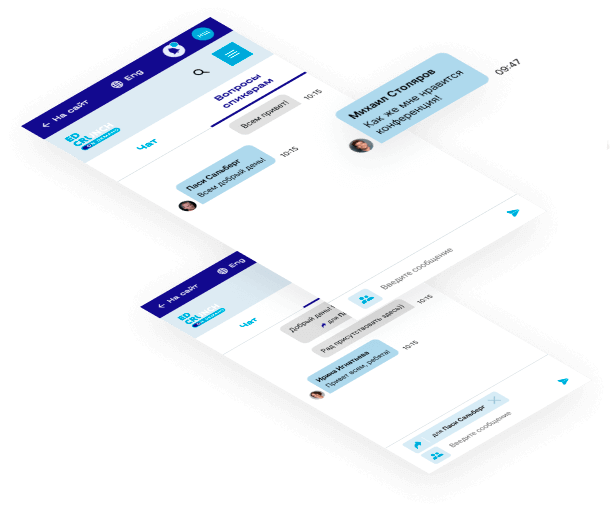
-
14 401registered
users -
30 628achievement badges earned by users for their activity
-
49 313messages written
in group chats -
6 664personal messages sent
by users via embedded messenger
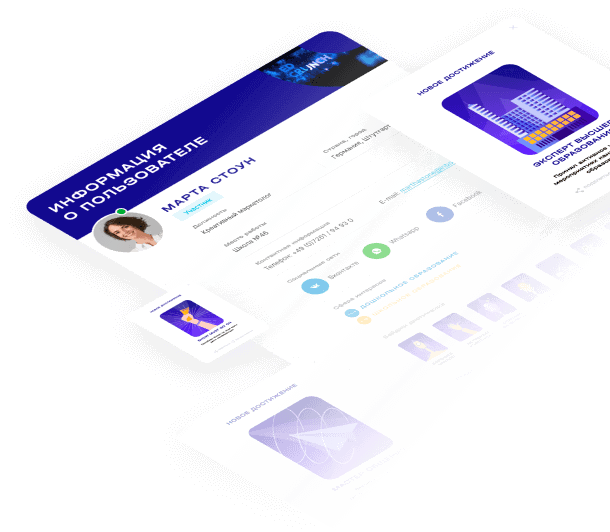
But the most valuable thing is that we all managed to be on the same page together to feel the overall vibe and support even at a distance!
8th EdCrunch journeyed to Kazakhstan!
This is how we found out that these people are promoting digitalization of education in their own country. Thus, in a heartbeat we decided to hold the conference in Kazakhstan.
Along with that we discovered that Kazakhstan experts - kindergarten teachers, school and university teachers - are looking for professional development. They strived to learn about new technologies and how to integrate them into the learning process.
This is when Nurlan Kiyasov, the founder of EdCrunch, started to visit cities around Kazakhstan to find a perfect venue.

all the participants
Generally each track was aimed at a single target audience: parents, teachers, university staff, corporate training managers or entrepreneurs. This time we launched an EdCrunch Stage track that was relevant and useful for all the participants. The track was both for offline visitors at our Almaty venue as well as online viewers.
we welcomed our speakers
interactive breaks
After rethinking the old format we decided to make it more interactive and unforgettable. The conference guests tried many new things: from working out to training vocal control.
At the EdCrunch Night the musicians
performed with national instruments.
of the participants were from Kazakhstan
The 9th EdCrunch — we stayed in Kazakhstan!
We were happy with the success of EdCrunch 2021 and decided to stay in hospitable Kazakhstan. We decided to reboot the knowledge about education and learning with the help of neuroscience, so the main theme of EdCrunch Reload was "Merging Minds & Technology”.
World neuroscience stars
We hosted neuroscientists who talked about how to improve the educational experience with the help of brain science. This time the conference was held at three venues in Almaty, where 10 business program halls worked simultaneously and 120 business and entertainment events took place.
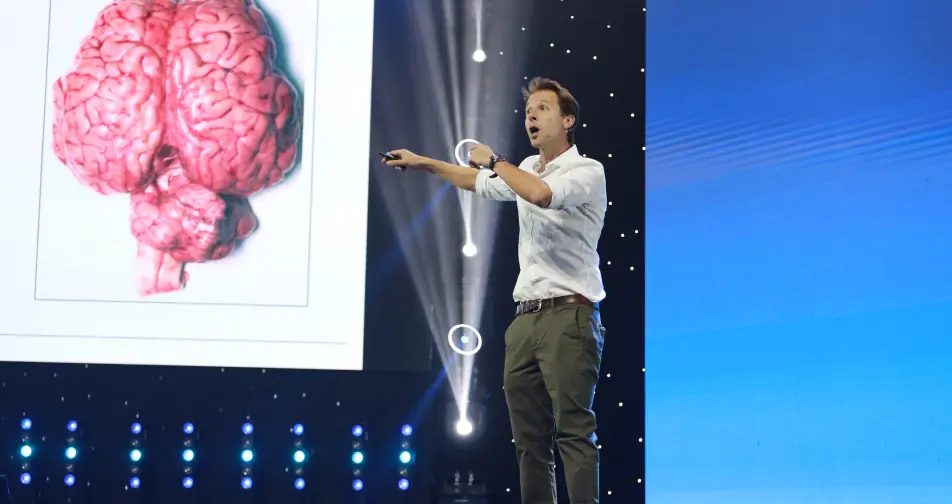
Jared Cooney Horvath
Educational Neuroscientist, Melbourne Graduate School of Education, University of Melbourne
University of Melbourne neuroscientist and Harvard lecturer Jared Cooney Horvath talks about how the brain predicts the future by a second and a half to two seconds. It continuously processes information and constantly updates its view of the world. This is the way it tells us the most probable future.
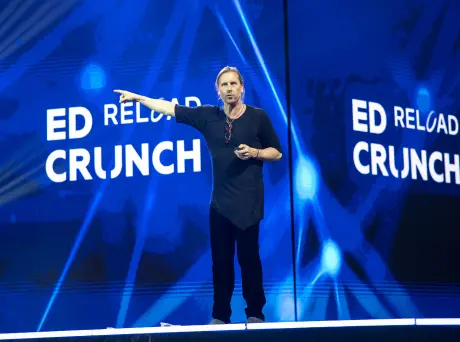
Beau Lotto
Professor of Neuroscience at University of London, Founder of the world’s first neurodesign studio Lab of Misfits
Beau Lotto is Professor of Neuroscience at the University of London and founder of the world's first neurodesign studio, Lab of Misfits. At EdCrunch, Beau spoke about the fact that we don't actually see reality. Beau believes that our senses, which we need to understand the world around us, actually prevent us from perceiving it objectively.
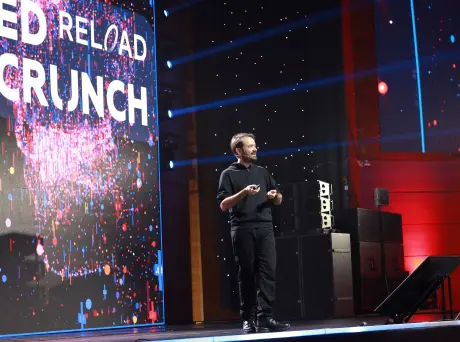
Michelle Zappa
Technology Futurist, Information Designer and Founder of Envisioning (a technology foresight institute)
And futurist Michelle Zappa said that the future belongs to the "centaurs". Centaurs are a symbiosis of machine and man, which, due to properly organized interaction, works more efficiently than the strongest people and the best computers.
Mentoring sessions for the first time at EdCrunch
The speakers met with the participants personally and shared their experiences and cases. For example, how to launch a learning portal, build HR processes from scratch and effectively train employees in new skills. The experts held 53 sessions in 2 days.
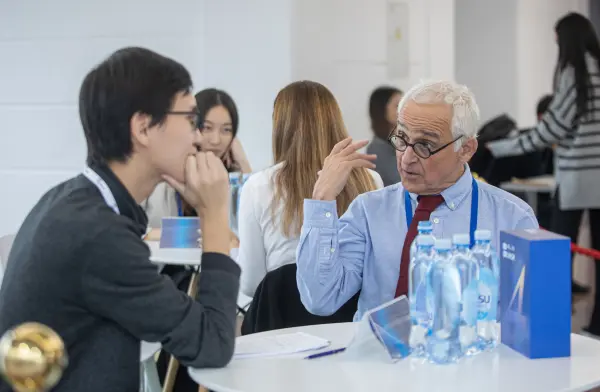
Harvard Graduate School of Education lecturer Randy-Michael Testa talks to an entrepreneur about what strategy to choose for an online school development.
Immersive show and performance based
on Asya Kazantseva's book
Immersive Show
The space liner is in distress. There are 6 passengers on board: an elderly philanthropist, a female teacher, a young scientist, a pregnant girl and newlyweds who are returning from their honeymoon. Due to a collision with space debris, the evacuation procedure was launched, and only one rescue capsule remained in service. The audience listened to the stories of the heroes and, by means of voting, chose who was worthy of being saved and returning to Earth, and who would remain wandering in outer space.
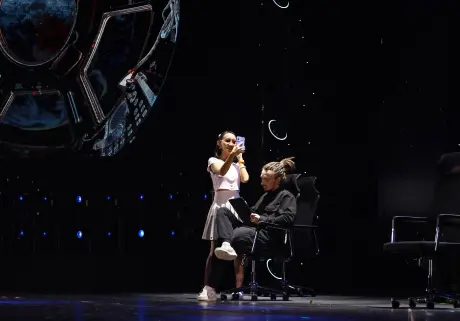
There were newlyweds on board the ship. The young wife told the audience that she would never fly to Earth without her husband — she preferred to die. But her husband, on the contrary, asked the audience to save him.
Through this show conference participants were able to participate in an experiment on morality, in which any decision led to a moral choice. Such an experiment helps to reveal the pattern according to which our brain makes choices and decisions.
Performance based on the book
by Asya Kazantseva
The heroes of the play tell why it is difficult for a person to give up smoking. This is because nicotine is built into our reward system in the brain. Without nicotine, this system no longer works, and so nicotine addiction develops.
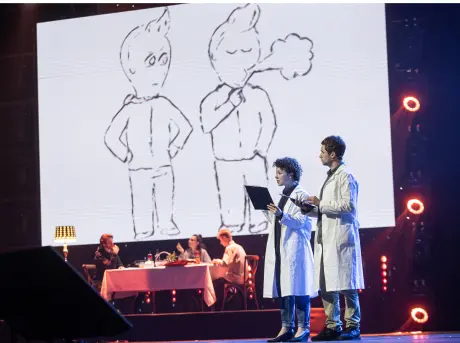
EdCrunch thundered
all over Almaty
referencing EdCrunch 50 mln
working
simultaneously 10
startups
at the exhibition
EdCrunch Expo 17
and entertaining format 118
from 20 countries 3758
22 countries 317
Conference results and victory
in EdTech Awards
Won the "Event of the Year. Greatest Benefit for the Edtech Business” award.
From the Smart Ranking agency. This agency ranks the largest companies in the field of online education and we became the first in the international direction.

EdCrunch 2023 —
make history together with us
EDCRUNCH
has been successfully submitted!
Thank you for your request.
In the next few days we will send
a message to your email.
a partner
We will study your request shortly and get back to you via the specified e-mail.

